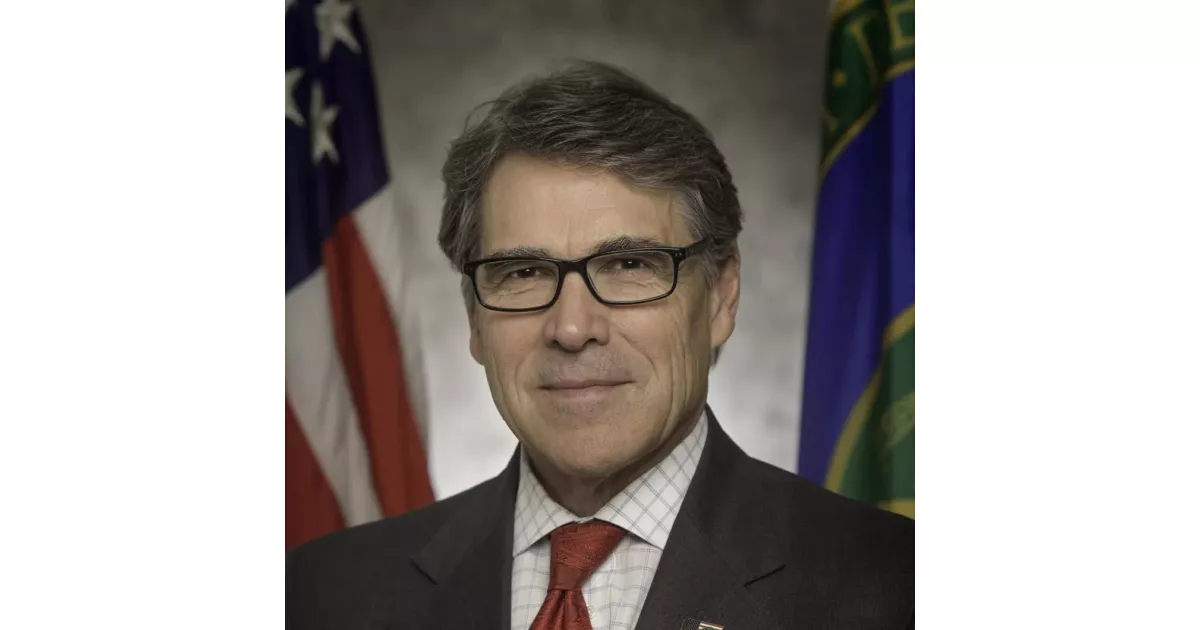How Rick Perry built a successful career. Explore key moments that defined the journey.
James Richard "Rick" Perry is an American politician notable for serving as the 14th United States Secretary of Energy (2017-2019) under President Donald Trump. Prior to this federal role, he was the 47th Governor of Texas, holding office from 2000 to 2015, making him the longest-serving governor in Texas history. Perry also sought the Republican nomination for President of the United States in both 2012 and 2016, though he was ultimately unsuccessful in securing the nomination.
1972: Commissioned as Officer
In 1972, Perry was commissioned as an officer in the United States Air Force after graduating from college.
February 1974: Completed Pilot Training
In February 1974, Rick Perry completed pilot training in the United States Air Force.
1976: Earthquake Relief in Guatemala
In 1976, as part of his duties in the Air Force, Rick Perry participated in earthquake relief efforts in Guatemala.
1977: Left the Air Force
In 1977, Rick Perry left the Air Force at the rank of captain and returned to Texas to farm cotton.
1984: Elected to Texas House of Representatives
In 1984, Rick Perry was elected to the Texas House of Representatives as a Democrat from district 64.
1985: Joined Texas House of Representatives
In 1985, Rick Perry became a member of the Texas House of Representatives, serving until 1991.
1987: Voted for Tax Increase
In 1987, Rick Perry, then a Democratic state representative, voted for a $5.7 billion tax increase proposed by Republican Governor Bill Clements.
September 29, 1989: Switched to Republican Party
On September 29, 1989, Rick Perry announced he was switching parties and becoming a Republican.
1989: Party Switch to Republican
In 1989, Rick Perry switched political parties from Democrat to Republican.
March 13, 1990: Republican Primary Vote
On March 13, 1990, in the Republican primary, Rick Perry received 47% of the vote, necessitating a runoff election for Agriculture Commissioner.
April 10, 1990: Won Republican Primary Runoff
On April 10, 1990, Rick Perry won the Republican primary runoff, securing the nomination for Agriculture Commissioner.
November 1990: Defeated Jim Hightower
In November 1990, Rick Perry narrowly defeated Jim Hightower in the election for Agriculture Commissioner.
1990: Challenged Jim Hightower
In 1990, Rick Perry, as a Republican, challenged Jim Hightower for the position of Agriculture Commissioner.
1991: End of term in Texas House of Representatives
In 1991, Rick Perry concluded his service in the Texas House of Representatives, having served since 1985.
April 1993: Supported Healthcare Reform
In April 1993, Rick Perry expressed support for healthcare reform while serving as Texas Agriculture Commissioner.
1994: Re-elected Agriculture Commissioner
In 1994, Rick Perry was re-elected as Agriculture Commissioner of Texas by a large margin.
1998: Ran for Lieutenant Governor
In 1998, Rick Perry ran for lieutenant governor of Texas, leading to a falling out with Karl Rove.
1998: Elected Lieutenant Governor of Texas
In 1998, Rick Perry was elected lieutenant governor of Texas, becoming the state's first Republican lieutenant governor since Reconstruction.
January 19, 1999: Took Office as Lieutenant Governor
On January 19, 1999, Rick Perry took office as the state's first Republican lieutenant governor since Reconstruction.
December 2000: Assumed Governorship of Texas
In December 2000, Rick Perry assumed the governorship of Texas after George W. Bush resigned following his election as president.
December 21, 2000: Assumed Office of Governor
On December 21, 2000, Rick Perry assumed the office of governor following George W. Bush's resignation.
2000: Became Governor of Texas
In 2000, Rick Perry became the 47th governor of Texas, later serving until 2015.
June 2001: Veto of ban on execution of mentally retarded inmates
In June 2001, Rick Perry vetoed a ban on the execution of mentally retarded inmates.
2001: Enactment of in-state tuition statute for undocumented immigrants
In 2001, Rick Perry expressed his pride in the enactment of the statute extending in-state tuition to undocumented immigrants meeting Texas residency requirements, requiring them to pledge to apply for permanent residency or citizenship if possible.
2001: Record Number of Vetoes
In the 2001 legislative session, Rick Perry set a record for his use of the veto, rejecting 82 acts.
2002: Tax Views
In 2002, Perry refused to promise not to raise taxes as governor, and in the following years did propose or approve various tax and debt increases.
2002: Proposal of Trans-Texas Corridor
In 2002, Rick Perry proposed the Trans-Texas Corridor (TTC), a $175 billion transportation network that would include a 4,000-mile network of highways, rail, and utility lines and would be funded by private investors.
2002: Won Gubernatorial Election
In 2002, Rick Perry won the gubernatorial election, receiving 58% of the votes.
2003: Signed Medical Malpractice Bill
In 2003, Rick Perry signed a bill that restricted non-economic damages in medical malpractice judgments.
2003: Created Texas Enterprise Fund
In 2003, Rick Perry signed legislation creating the Texas Enterprise Fund, which has since given $435 million in grants to businesses.
2005: Commented on Healthcare Support
In 2005, Rick Perry stated he had supported the healthcare reform effort to get President Clinton to pay more attention to rural healthcare.
2005: Opposition to Shortchanging Education Budget
In 2005, Rick Perry stated he would not approve an education budget that shortchanges teacher salary increases, textbooks, education technology, and education reforms, and that $2 billion should not sit in a bank account when it can go directly to the classroom.
2006: Re-elected Governor
In 2006, Rick Perry was re-elected as governor of Texas against three major opponents, polling 39% of the votes.
2006: Trans-Texas Corridor became a major issue in the gubernatorial campaign
The Trans-Texas Corridor project, also called the "NAFTA super highway", garnered opposition from rural Texans, labor and environmentalists, and the project became a major issue in the 2006 gubernatorial campaign.
2007: Signing of Law Ending Automatic Arrest for Cannabis Possession
In 2007, Rick Perry signed a law ending automatic arrest for cannabis possession.
2008: Became Chairman of Republican Governors Association
In 2008, Rick Perry became chairman of the Republican Governors Association.
2008: Consideration as a potential presidential candidate
Rick Perry was considered as a potential candidate since as early as the 2008 presidential election, initially denying he was interested in the office but later becoming more open-minded.
2009: Signed Tax Pledge
In 2009, Rick Perry signed Grover Norquist's pledge to oppose and veto any efforts to increase taxes.
2009: Dropping of plans for Trans-Texas Corridor
In 2009, plans for the Trans-Texas Corridor project were dropped in favor of more incremental road projects.
2010: Elected to Third Term as Governor
In 2010, Rick Perry became the first Texas governor to be elected to three four-year terms, polling 55% of the votes.
June 2011: Proclamation of Day of Prayer and Fasting
In June 2011, Rick Perry proclaimed August 6 as a Day of Prayer and Fasting and invited other governors to a prayer meeting hosted by the American Family Association in Houston. The event was criticized for being used as a launching pad for Perry's presidential campaign.
August 13, 2011: Formal launch of 2012 presidential campaign
On August 13, 2011, Rick Perry formally launched his 2012 presidential campaign in Charleston, South Carolina.
August 2011: Announced Candidacy for President
In August 2011, Rick Perry officially announced his candidacy for the 2012 Republican nomination for president.
2011: Chairman of Republican Governors Association
In 2011, Rick Perry was chairman of the Republican Governors Association again.
2011: Statement on innocence of executed inmates
In 2011, during a televised debate for presidential candidates, Rick Perry said he had "never struggled" with the question of the possible innocence of any of the 234 inmates executed to date while he was governor.
January 3, 2012: Fifth-place finish in Iowa caucuses
After finishing fifth with just over 10% of the vote in the Iowa caucuses on January 3, 2012, Rick Perry considered dropping out of the presidential race but did not.
January 2012: Withdrew from Presidential Race
In January 2012, Rick Perry withdrew from the race for the Republican nomination for president.
January 19, 2012: Suspension of 2012 presidential campaign
After a poor showing in New Hampshire and with "lagging" poll numbers in South Carolina, Rick Perry formally announced he was suspending his 2012 presidential campaign on January 19, 2012.
2012: Mentioned as Potential Candidate for 2016 Presidential Election
Almost immediately following the 2012 election, Rick Perry was mentioned as a potential candidate for the presidency in the 2016 presidential election.
2012: Unsuccessful Presidential Run
In 2012, Rick Perry ran unsuccessfully for the Republican nomination for President of the United States.
June 2013: Leading in University of Texas at Austin–Texas Tribune poll
By the end of his third full term, a University of Texas at Austin–Texas Tribune poll released in June 2013, showed Rick Perry leading potential primary challenger Attorney General Greg Abbott by double digits, 45–19%.
July 8, 2013: Announcement of retirement from governorship
On July 8, 2013, Rick Perry announced he would retire and not run for re-election to a fourth full term as governor of Texas.
July 2013: Time magazine article on Perry's potential 2016 candidacy
A Time magazine article in July 2013 stated that "everything is aligned for Rick Perry to be the Republican nominee for president in 2016."
July 21, 2014: Announcement of National Guard deployment to border
On July 21, 2014, Rick Perry announced he would send in 1,000 National Guard troops to secure the Texas-Mexico border amid a surge in illegal immigration. PolitiFact.com rated his claim that the decline resulted from the surge as "mostly false".
September 2014: Continuous support for in-state tuition program
In September 2014, Rick Perry stated his continuous support for the program that extended in-state tuition to undocumented immigrants during a debate.
January 20, 2015: End of gubernatorial tenure
Rick Perry retired with the 10th longest gubernatorial tenure in United States history at the end of his term on January 20, 2015, at 5,143 days as well as the record of the longest serving Texas governor.
June 4, 2015: Official launch of 2016 presidential candidacy
Rick Perry officially launched his 2016 presidential candidacy on June 4, 2015, in Addison, Texas, with a Colt Ford song playing.
September 11, 2015: Perry withdraws from presidential race
On September 11, 2015, Rick Perry withdrew from the presidential race. He was the first major candidate to drop out, due to poor polling and dire financial straits within his campaign, which was spending far more than it was raising.
2015: Left Office as Governor
In 2015, Rick Perry declined to seek re-election to a fourth term as governor and left office.
2015: End of Term as Governor of Texas
In 2015, Rick Perry's term as the 47th governor of Texas came to an end, after having served since 2000.
February 2016: Perry Cleared of All Charges
In February 2016, Rick Perry was cleared of all charges related to the 2014 indictment.
May 5, 2016: Perry Endorses Donald Trump for President
On May 5, 2016, after Ted Cruz suspended his presidential campaign, Rick Perry endorsed Donald Trump for the presidency.
December 14, 2016: Trump Nominates Perry as Secretary of Energy
On December 14, 2016, President-elect Donald Trump nominated Rick Perry as Secretary of Energy. This nomination was initially met with criticism due to Perry's past calls to abolish the Department of Energy.
2016: Endorsed Donald Trump
In 2016, Rick Perry endorsed Donald Trump for president after Trump secured the Republican nomination.
2016: Unsuccessful Presidential Run
In 2016, Rick Perry ran unsuccessfully for the Republican nomination for President of the United States.
2016: Embracing Trump's proposed border wall
In 2016, after Trump won the Republican presidential nomination, Rick Perry fully embraced Trump's proposed border wall, having previously been a critic of building a wall or fence along the border.
2016: Official launch of 2016 presidential candidacy
Rick Perry officially launched his 2016 presidential candidacy in 2016 in Addison, Texas, at a scheduled press conference.
2016: Potential Candidate for 2016 Presidential Election
Rick Perry was mentioned as a potential candidate for the presidency in the 2016 presidential election.
December 31, 2016: Perry Resigned from Boards of Energy Companies
According to SEC filings, on December 31, 2016, Rick Perry resigned from the boards of directors of Energy Transfer Partners and Sunoco Partners.
January 31, 2017: Perry's Nomination Approved by Senate Committee
On January 31, 2017, Rick Perry's nomination as Secretary of Energy was approved by a 16–7 vote from the United States Senate Committee on Energy and Natural Resources.
March 2, 2017: Confirmed as Secretary of Energy
On March 2, 2017, Rick Perry was confirmed by the United States Senate as Secretary of Energy.
2017: Appointment as Secretary of Energy
In 2017, Rick Perry was appointed as the 14th United States Secretary of Energy in the first administration of Donald Trump.
May 2019: Ukraine Awards Contract to Perry's Supporters
In May 2019, a little more than a month after Rick Perry attended Zelenskyy's inauguration, Ukraine awarded a contract to Perry's supporters after Perry recommended one of them to be Zelenskyy's energy adviser. The recommendation occurred as Zelenskyy sought nearly $400 million in U.S. military aid.
July 25, 2019: Trump-Zelenskyy Telephone Call
On July 25, 2019, a telephone call between Trump and Ukrainian President Volodymyr Zelenskyy led to a whistleblower complaint and an impeachment inquiry against Trump. Trump later claimed the call was at Perry's urging, to discuss energy security. However, the publicly released memo focused on Trump's requests for investigations into Joe Biden, Hunter Biden, Crowdstrike, and the 2016 U.S. presidential election.
October 4, 2019: Reported Expected Resignation
On October 4, 2019, the New York Times reported that Rick Perry was expected to resign as Secretary of Energy by the end of 2019, based on information from anonymous sources.
October 2019: Perry's Alleged Plan to Replace Naftogaz Board Member
In October 2019, former U.S. officials mentioned Rick Perry in relation to reports that he planned to have Amos Hochstein replaced as a member of the board at Naftogaz with someone aligned with Republican interests. Perry denied these reports.
October 17, 2019: Intention to Resign
On October 17, 2019, Rick Perry reported to Donald Trump his intention to resign as Secretary of Energy at the end of the year.
November 2019: Sondland and Holmes Testify Perry Played Senior Role in Ukraine Campaign
In November 2019, Gordon Sondland and David Holmes testified that Rick Perry played a senior role in the Ukraine campaign, describing Perry, along with Sondland and Volker, as one of the "Three Amigos" assisting Trump and Giuliani.
December 1, 2019: Left Office
On December 1, 2019, Rick Perry left office as Secretary of Energy.
2019: Resignation as Secretary of Energy
In 2019, Rick Perry served as the 14th United States Secretary of Energy until December 1, 2019.
2022: Report on Border Security Efforts
According to a 2022 investigative report by the Texas Tribune, "The way the governors and their administrations have tracked success has fluctuated over the years, offering little clarity into whether the state is closer to securing the border today than it was nearly 20 years ago."
Mentioned in this timeline

Donald John Trump is an American politician media personality and...
Ukraine is a country in Eastern Europe the second-largest on...

Barack Obama the th U S President - was the...

George W Bush the rd U S President - is...
CNBC is an American business news channel owned by Versant...
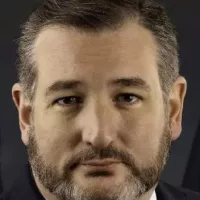
Ted Cruz born Rafael Edward Cruz is an American politician...
Trending
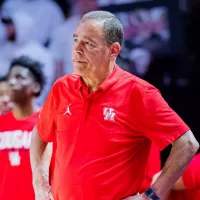
22 minutes ago Kelvin Sampson's Coaching Philosophy and Houston Cougars' SLAM Magazine Cover
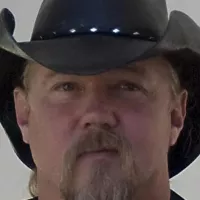
22 minutes ago Trace Adkins Hints at Retirement with 2026 Tour Potentially Being His Last

22 minutes ago Urgent search: 3-year-old girl missing in Avondale, Amber Alert issued for safe return.
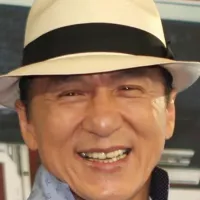
23 minutes ago Jackie Chan Shines in 'Unexpected Family' and Berlin Film Festival Recognition
23 minutes ago DAZN and Matchroom Boxing Extend Media Rights Deal for Five Years

23 minutes ago Russell Westbrook's wife receives death threats amid sports betting accusations and fan anger.
Popular

Jesse Jackson is an American civil rights activist politician and...

Barack Obama the th U S President - was the...
Randall Adam Fine is an American politician a Republican who...

Ken Paxton is an American politician and lawyer serving as...

Bernie Sanders is a prominent American politician currently serving as...

Michael Joseph Jackson the King of Pop was a highly...
